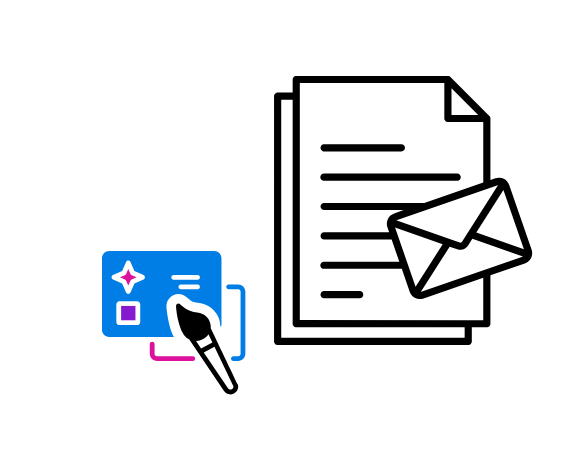What is an Offer Letter Follow-Up Email?
A follow-up email regarding your offer letter is a communication you send to an employer after receiving a job offer. The reasons for sending this email can vary depending on your situation. You may wish to express gratitude for the offer, clarify specific details, or discuss salary and benefits. This follow-up is not only a courteous act but also a strategic way to confirm that both you and the employer have aligned expectations before you officially take the role.
By reaching out, you show your enthusiasm and professionalism, which can leave a positive impression on the hiring team. Moreover, if you have any concerns or questions about the offer, this email serves as a platform to address them. Overall, it's a vital step in the job acceptance process that can pave the way for a successful working relationship.
Importance of Following Up on an Offer Letter
Following up on an offer letter is essential for several reasons:
- Clarity and Understanding: The offer letter may contain terms that require clarification, such as benefits, job responsibilities, or salary. Addressing these uncertainties ensures that you fully understand what you are accepting.
- Professionalism: A well-crafted follow-up email demonstrates your professionalism and seriousness about the opportunity. It indicates that you are someone who pays attention to details and values clear communication.
- Negotiation Opportunity: If you feel the need to negotiate aspects of the offer—like salary, benefits, or work hours—this email is an appropriate way to start that conversation. Employers often expect candidates to negotiate, so don’t shy away from expressing your needs.
- Building Relationships: Following up helps to establish a rapport with your future employer. By communicating openly and positively, you set the stage for a constructive working relationship.
- Professional Image: Taking the time to follow up reflects well on your professional image. It shows that you are diligent, organized, and genuinely interested in the role.
Offer Letter Follow-Up Email Template
Subject Line: Thank You for the Job Offer
Dear [Hiring Manager's Name],
I hope this message finds you well. I want to extend my sincere gratitude for the job offer for the [Job Title] position at [Company Name]. I am genuinely excited about the opportunity to join your team and contribute to [mention any specific project or value related to the company]. Before I move forward with accepting the offer, I have a few questions that I hope you can assist me with:
- Salary and Compensation: I am grateful for the offered salary; however, I would like to discuss the possibility of a higher base salary, considering my experience in [specific skills or achievements relevant to the role]. Additionally, could you provide further details regarding the benefits package, including health insurance and retirement plans?
- Start Date: I would like to confirm the proposed start date. Is there any flexibility with this, as I want to ensure a smooth transition from my current position?
- Remote Work Policies: Lastly, I am curious about the company’s remote work policies, especially in the context of my role. How does the team handle work-from-home arrangements? Thank you once again for this incredible opportunity. I look forward to your response and hope to finalize the details soon.
[Your Name]
[Your Phone Number]
[Your LinkedIn Profile or Professional Website, if applicable]
Personalization Tips
To ensure your follow-up email is effective, consider the following tips for personalization:
- Tailor the Message: Adjust the template to reflect your personal style and the specific nuances of the job offer. Make it unique to your situation.
- Be Specific: When asking questions or making requests, be as specific as possible. This helps the hiring manager provide you with the exact information you need.
- Maintain a Positive Tone: While it’s important to address your concerns, keep the tone positive and appreciative. You want to reinforce your enthusiasm about the role.
- Use Professional Language: Maintain a formal tone throughout your email. Avoid slang and casual language to present yourself as a serious candidate.
- Proofread: Always take the time to proofread your email for grammatical errors or typos. A well-written email reflects your attention to detail and professionalism.
Examples of Offer Letter Follow-Up Scenarios
To illustrate how the follow-up email can be adapted, here are a few scenarios:
- Clarifying Job Responsibilities: If the job description was vague, you could include a question like, “Could you provide more details about the specific responsibilities I would be handling in this role?”
- Discussing Relocation Assistance: If you’re moving for the job, you might ask, “Is there any relocation assistance available for this position? If so, could you provide more information?”
- Inquiring About Professional Development Opportunities: You may want to ask about career growth by including a question like, “I’m also interested in any professional development opportunities the company may offer, such as training programs or workshops.”
Conclusion
Following up on your offer letter is not just a courtesy; it's a strategic move that can shape your relationship with your new employer. By utilizing the provided template and customizing it to fit your needs, you can navigate this crucial step with confidence. Remember, this email sets the stage for your future interactions, so it’s worth taking the time to get it right. Good luck, and congratulations on your new job opportunity!
Frequently Asked Questions
Speak to an expertGet started by yourself, for
A 14-days free trial to source & engage with your first candidate today.
Book a free TrialAchieving AwesomenessRecognized with an

Let's delve into the possibilities of what
we can achieve for your business.

